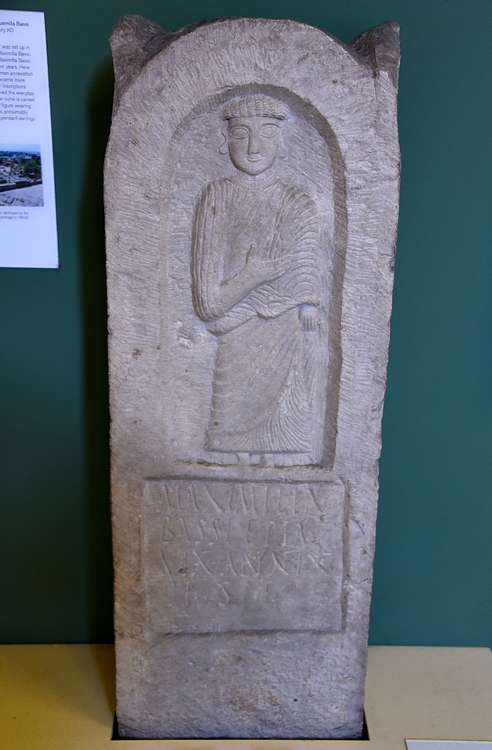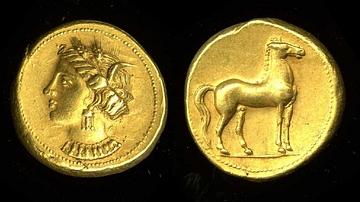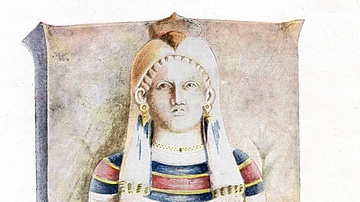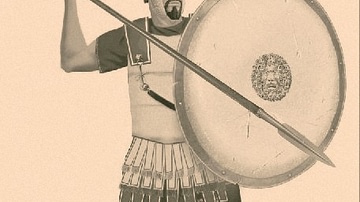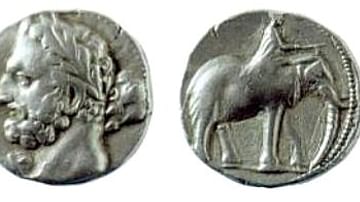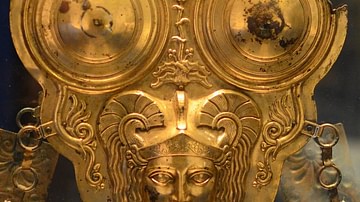Illustration
This finely carved limestone monument was set up in a memory for a woman called Maximilla Bassi. The Latin inscription says "Maximilla Bassi, Pious daughter, lived nineteen years. Here she is placed". After the Roman annexation of Carthage in 146 BCE, it became more fashionable to use Latin for inscriptions, although Phoenician remained the everyday language used. The shallow niche is carved with an image of a female figure wearing a pleated tunic and mantle, presumably Maximilla. She also wears pendent earrings and a necklace. From Carthage, modern-day Tunisia. Punic, 2nd to 3rd century CE. (The British Museum, London)
Cite This Work
APA Style
Amin, O. S. M. (2016, June 16). Carthaginian Tombstone for Maximilla Bassi. World History Encyclopedia. Retrieved from https://www.worldhistory.org/image/5212/carthaginian-tombstone-for-maximilla-bassi/
Chicago Style
Amin, Osama Shukir Muhammed. "Carthaginian Tombstone for Maximilla Bassi." World History Encyclopedia. Last modified June 16, 2016. https://www.worldhistory.org/image/5212/carthaginian-tombstone-for-maximilla-bassi/.
MLA Style
Amin, Osama Shukir Muhammed. "Carthaginian Tombstone for Maximilla Bassi." World History Encyclopedia. World History Encyclopedia, 16 Jun 2016. Web. 25 Apr 2024.
